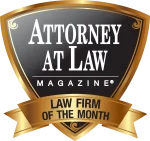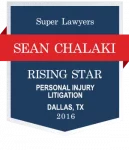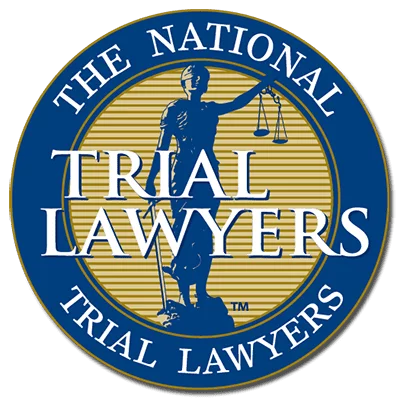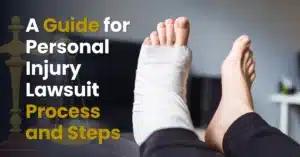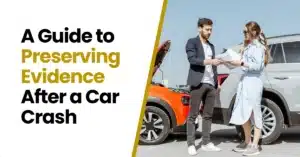WHAT IS THE TEXAS DRAM SHOP ACT?
While it is the responsibility of all drivers to ensure they don’t drink and drive, Texas law holds alcohol-serving establishments liable when they provide alcohol to a drunk patron who later causes a car wreck. The Texas Dram Shop act is included in the Alcoholic Beverage Code and holds alcohol-serving establishments liable for serving alcohol to obviously drunk patrons. The purpose of the Dram Shop Act is to prevent bars and restaurants from negligently over-serving alcohol to already drunk patrons. When alcohol is sold or served to a drunk person who then causes injury, the establishment may be sued in civil court by the injured persons. However, this law does not remove blame from the driver and only holds the establishment liable for their part in over-serving. This Texas law is a way for victims of unlawful alcohol service to recover damages for their injuries.
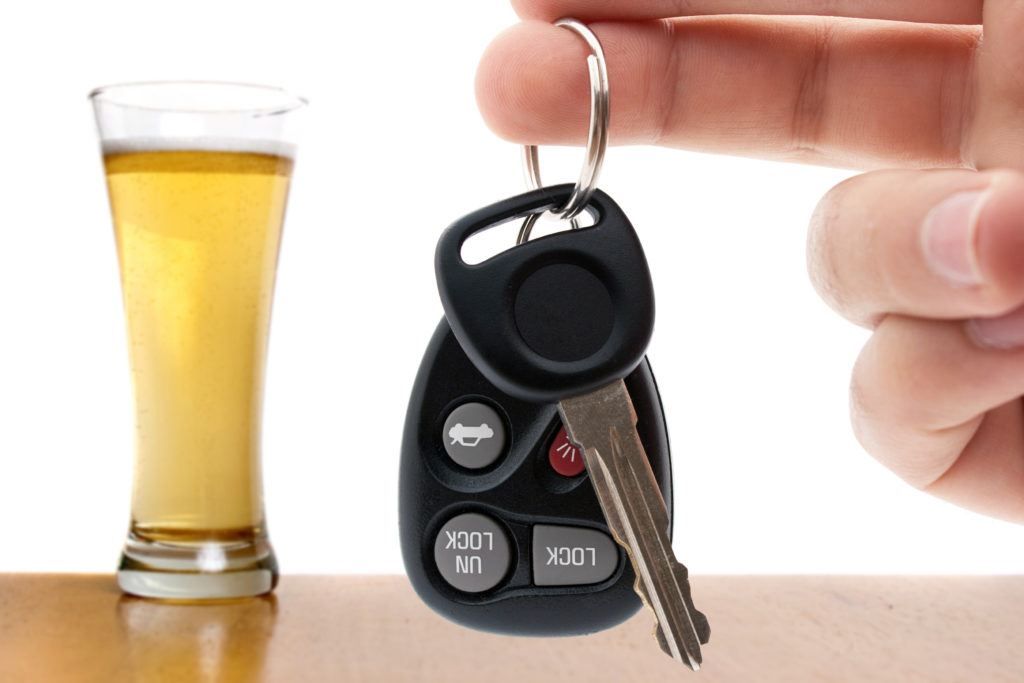
Drunk driving conceptual image with a hand holding some car keys and a glass of beer in the background. Shallow depth of field.
WHAT MUST BE PROVEN IN A DRAM SHOP CLAIM?
For the Dram Shop Act to apply the alcoholic beverages must be sold. This was not meant to include “social hosts,” where people host parties within their own homes among friends and family. The Dram Shop Act only applies to establishments that have been licensed to sell alcohol in the state of Texas. The Dram Shop Act creates a responsibility of establishments and their employees to refrain from serving obviously intoxicated adults. The Act specifically states that anyone “providing, selling, or serving an alcoholic beverage” to an “obviously intoxicated person” can be held liable for injuries caused by the alcohol service. Therefore, these establishments are responsible for their employees’ actions and will be liable under Texas law for injuries and damages caused by their alcohol service. To hold an establishment liable under the statute, the person suing the establishment must prove that at the time the alcohol was served:
- It was apparent to the provider that the recipient was obviously intoxicated to the extent that the recipient presented a clear danger to all; and
- That intoxication of that individual proximately caused the damages suffered.
In short, the person pursuing the lawsuit would need to provide evidence that the person involved was obviously intoxicated at the time alcohol was served, and that the server should have known. Only when these elements are met can an injured person sue an establishment under the Dram Shop Act. However, the Texas law does not hold these establishments solely liable for drunk-driving accidents. The Texas Supreme Court has held that the person, bar, restaurant or other alcohol provider can only be held responsible for its percentage of fault in the accident instead of the full amount with the drunk driver. Further, the establishment can only be held responsible if a judge or jury finds that the establishment or employees were at least 50 percent responsible for the injuries or damages. This means that if the establishment is found to be less than 50% responsible, they are relieved from liability.
DEFENSES
The Dram Shop Act also provides a section that protects an establishment from liability with a defense known as the Safe Harbor defense. When an establishment can prove that they have followed guidelines provided by the state, they may be able to avoid liability.
To be protected under the Safe Harbor Defense, an establishment would need to show:
- The establishment requires its employees to attend a Texas Alcohol Beverage Commission (TABC) approved training program
- The establishment makes sure its employees actually take the class and are certified; and
- The establishment has not directly or indirectly encouraged its employees to violate TABC rules.
DAMAGES
When a civil lawsuit is brought against an establishment, and the drunk driver is found legally responsible for the injured person’s damages, that liability is expressed only in the terms of money damages. Common types of damages sought in alcohol-related accident claims include:
- Medical bills
- Lost wages, including lost earning capacity from partial or total disability caused by the accident
- Compensation for lost or damaged property
- Pain and suffering
STATUTE OF LIMITATIONS
As with other civil actions, Dram Shop claims must be filed in a Texas court within a specific amount of time known as the statute of limitations. Dram Shop claims must be filed within two years of the date of injury. Failing to file a civil action within this time period could mean the injured person loses their right to file a lawsuit and their right to recover damages caused by the drunk driver.
Texas restaurants, bars, and other alcohol-serving establishments have a responsibility to its patrons to provide proper service under the law. The Dram Shop Act provides an exclusive remedy for victims to recover damages from establishments who negligently over-served alcohol to already drunk patrons.
Sources
§ 2:236.Negligence liability—Actions against alcohol server, 1 Tex. Prac. Guide Torts § 2:236
Daphne D. Sipes, The Emergence of Civil Liability for Dispensing Alcohol: A Comparative Study, 8 Rev. Litig. 1, 15 (1988) 7B Tex. Jur. Pl & Pr. Forms § 136:6 (2d ed.)
⚖ OUR EXPERIENCED DALLAS PERSONAL INJURY LAWYERS ARE READY TO HELP ⚖
Chalaki Law is a Texas litigation firm focused on litigating sophisticated cases regarding premises liability, car accidents & collisions, and construction injuries. We pride our self in customer service and satisfaction. We always ask our clients to let us evaluate their case, explain our process, and gain their trust, prior retaining our services. Check out some testimonials from past clients who we have served, as well as our firm reviews. We look forward to representing you and your family members.
CLIENT TESTIMONIALS & REVIEWS
[grw place_photo=”https://lh3.googleusercontent.com/p/AF1QipN8_9ZZZPE_hpWa3jXduDCfYsOwkOEeocHRqLbV=s1600-w300-h300″ place_name=”Chalaki Law” place_id=”ChIJM_fKRCchTIYRfJz-ZTetaVg” pagination=”5″ text_size=”120″ refresh_reviews=true lazy_load_img=true reduce_avatars_size=true open_link=true nofollow_link=true]
For helpful guidance on what you can do following a car accident, read our Car Accident Help Guide documentation.

